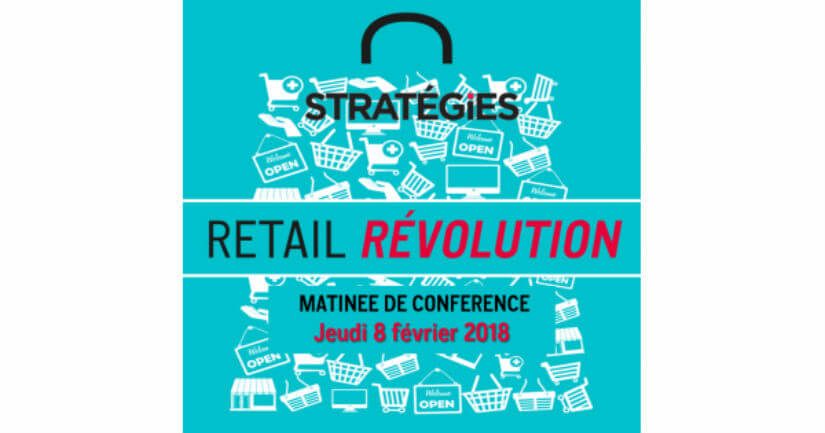On Thursday, February 8, 2018, we attended the conference organized by "Stratégies" on the theme of "retailers and points of sale in the midst of change". On this occasion, many speakers from the retail world were invited: Monoprix, Etam, Bain & Company, BBDO, Fnac/Darty, Marketing Mobile Association France...
A number of questions were raised: what will tomorrow's retailer look like? Will the customer experience be enough to save the retail industry? Is mobile the new point of sale? RGPD, eprivacy: how can we be ready in time? The roundtables did not provide precise answers to these questions, but some major trends stood out.
The point of sale
First of all, the physical point of sale is not dead - quite the contrary, it remains the future of the retailer, provided it evolves.
The point of sale remains a brand's showcase and its main means of communicating its values to consumers. It must take advantage of its strong points, which are: the opportunity to test products, to leave with them immediately, and above all, human contact!
The first major trend is to bring digital into stores, but to good effect, as Jean-Bernard Della Chiesa, Director of Innovation at Etam, and Loïc Mercie, Director of Strategy at BBDO, are convinced.
Indeed, we mustn't forget the fundamentals that are the strength of the point of sale, such as the digitalized fitting room. By replacing the traditional fitting room with a connected one, customers can choose a different size or model, and can also select complementary products.
However, the product must continue to be at the heart of the customer experience, through its originality, innovation and the brand values it conveys, as the Décathlon brand has done.
The distributor of tomorrow
Marc André Kamel, Head of Distribution EMEA at Bain & Company, answers the question "What will a distributor look like tomorrow?" by identifying 5 trends for the future:
- Everything can be bought anytime, anywhere.
- The evolution of physical stores towards "showrooms" that emphasize experience and offer new services.
- Using robotics to optimize logistics.
- Data analysis and predictive marketing.
Retailers are reacting to the new competition from the Internet and new consumer trends in a variety of ways:
- Investment in the customer experience, such as Zara's connected mirror that allows customers to complete their purchases;
- Drastically reduce costs by closing sales outlets;
- Diversification by offering new services through partnerships or takeovers, such as Ikea's partnership with TaskRabbit, an American platform that offers to hire neighbors to carry out repairs, cleaning, etc.
According to Marc Andréa Kamel, many distributors are too short-sighted and underestimate the power of data , whereas the web behemoths have understood this by investing heavily and creating numerous partnerships.
Thus, the future of the distributor lies in the combination of the following points:
- intelligent cost reduction (through technology and data),
- continuous improvement of the customer experience,
- innovation by reinventing new business models,
- creating partnerships with retail disruptors.
The winning model isomnichannel, which is why physical commerce needs to integrate new ways of working: more flexible, faster. That's where mobile comes in.
Cell phones, the new point of sale
The mobile is one of the major assets for the future of the point of sale. It enables both online and in-store sales. It must be at the heart of phygital and the retailer's strategy.
Renaud Ménérat, President of the Mobile Marketing Association France, shares his top 10 mobile resolutions for distributors:
- Rethink your e-commerce site in the mobile-first era to improve conversion
- Develop a "premium" application (with services) to better serve loyal customers
- Making Voice bot the future flagship
- Dematerialize coupons and catalogs
- Digitizing catchment areas
- Reinventing impulse buying by guiding users
- Turning sales consultants into superheroes
- Eliminate the need for payment/passage through the checkout to facilitate fluidity (mobile payment, NFC, etc.).
- Stop trading, become a medium
- Offer a 100% mobile-only experience (e.g. Amazon Go)
But omnichannel and new technologies also mean data collection. Thanks to the intervention of Vincent Varet, Doctor of Law and Professor at the University of Paris II, we were able to see more clearly about the RGPD regulation and what it implies.
This conference was an opportunity to share the different points of view of major retail players, and to reinforce our conviction that the point of sale remains and will remain the retailer's strong point. However, it must continue to evolve, taking new technologies into account. Omnichannel retailing is the future of distribution.

